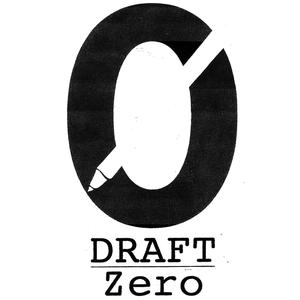
Draft Zero: a screenwriting podcast
Chas Fisher and Stuart Willis
- 1 hour 56 minutesDZ-115: A Christmas Special - Rewatching & Rituals
What magic do Christmas movies use to make them so rewatchable?
In this “backmatter” episode of Draft Zero, Stu, Chas, and Mel Killingsworth embark on a festive exploration of what makes holiday films so engaging and so re-watchable that they can become part of our rituals. To that end, we breakdown the charm of of Christmas films like KISS KISS BANG BANG, RIDERS OF JUSTICE, and IT’S A WONDERFUL LIFE.
We discuss what defines a holiday movie, the power of nostalgia, the importance of ensembles to a sense of family, and how voiceover, snappy dialogue and intricate plots can make something rewatchable. For each of us, we see these films as gateways to introspection and shared experiences during the holidays.
And we are briefly joined by filmmaker (and friend of the podcast) Damien Cassar who talks us through the meaning of nostalgia and it’s relationship with the “pain of homecoming”, and how Christmas/Holiday films provide comfort and a sense of belonging amid ever-changing societal dynamics.
Merry Christmas!
As always: SPOILERS ABOUND and all copyright material used under fair use for educational purposes.
Thanks to Chris Walker for his excellent editing this episode.
CHAPTERS
- 00:00:00 – Cold Open
- 00:01:00 – What do we mean by Holiday Movies?
- 00:18:52 – Kiss Kiss Bang Bang
- 00:41:16 – Riders of Justice
- 01:03:45 – Sponsorship: Arc Studio Pro
- 01:06:30 – It’s A Wonderful Life
- 01:48:37 – Key Learnings & Wrap Up
- 01:51:03 – On Nostalgia
- 01:54:28 – Many thanks to our Patreons
This episode brought to you by (drum roll) ArcStudio: go to https://www.arcstudiopro.com/draftzero for $30 off a pro subscription!
And how can we forget our awesome Patreons? Especially Lily, Paulo, Alexandre, Malay, Jennifer, Thomas, Randy, Jesse, Sandra, Theis, and Khrob.
Please considering rating or subscribing to us on Apple Podcasts or sharing us on the Social Medias! We like finding new listeners.
We are @stuwillis, @mehlsbells and @chasffisher on Twitter. You can find @draft_zero and @_shotzero on Instagram and Twitter.
BUY DRAFT ZERO MERCH via TeePublic SUBSCRIBE TO SHOT ZERO via Substack
23 December 2024, 5:18 am - 1 hour 17 minutesDZ-114: Climaxes in Challengers
How does ending your story on the climax affect audience experience?
While Stu is on show, Mel and Chas sit down to analyse the meaning behind the ending of 2024’s CHALLENGERS, especially when - upon reading the script - the most impactful moment of the ending on screen (for Chas in particular) is not written on the page.
Following on from episodes on filmmakers talking directly to the audience as well as previous exploration into choices and decisions (and hopefully serving as a prelude to our episode on Hero’s Choice), Mel and Chas explore the choices the characters make in that final moment, what happens when filmmakers obscure character motivation, and ultimately how that final moment in CHALLENGERS impacts theme.
This conversation ends up being a deep exploration of what is the experience on the audience (and its impact on the perceived theme) when a story cuts out at the climax without further resolution.
As always: SPOILERS ABOUND and all copyright material used under fair use for educational purposes.
CHAPTERS
- 00:00:00 - Cold Open
- 00:00:24 - The ending of CHALLENGERS
- 00:14:51 - Can one action line change the entire meaning of a film?
- 00:39:41 - Arc Studio Pro
- 00:42:29 - The effect of giving characters decisions
- 00:52:10 - Meta subtext
- 00:53:53 - Choices, feelings and theme
- 01:06:03 - Ending on the climax
- 01:09:27 - Key Learnings
- 01:15:59 - Patreon thanks
RELATED EPISODES
- DZ-113: Tools for filmmakers to talk to the audience
- DZ-84: Choices & Decisions
- DZ-111: Unreliable Narrators and Fight Club
LINKS
- CHALLENGERS screenplay
- How that crazy final tennis ball POV tumbling scene in CHALLENGERS was made
- Challengers ending explained: Screenwriter Justin Kuritzkes on that epic final scene
This episode brought to you by (drum roll) ArcStudio: go to https://www.arcstudiopro.com/draftzero for $30 off a pro subscription!
And how can we forget our awesome Patreons? Especially Lily, Paulo, Alexandre, Malay, Jennifer, Thomas, Randy, Jesse, Sandra, Theis, and Khrob.
Please considering rating or subscribing to us on Apple Podcasts or sharing us on the Social Medias! We like finding new listeners.
We are @stuwillis, @mehlsbells and @chasffisher on Twitter. You can find @draft_zero and @_shotzero on Instagram and Twitter.
BUY DRAFT ZERO MERCH via TeePublic SUBSCRIBE TO SHOT ZERO via Substack
29 November 2024, 12:38 am - 2 hours 3 minutesDZ-113: Tools for filmmakers to talk to the audience
What tools help ensure that you as the filmmaker are not misunderstood?
In our final (ha!) episode looking at Talking Directly to the Audience, we turn away from character-and-text based craft tools to look at other ways that filmmakers - whether they be directors, writers, editors, or anyone else - can make the audience feel their 'hand' more.
To that end, Mel, Stu and Chas dive into ADAPTATION, STORIES WE TELL and THE FORTY-YEAR-OLD VERSION.
We discuss structure (in particular how to structure more “meta” stories), the influence of TikTok and YouTube in portraying character authenticity, how to set up scenes where your characters can actually debate what your story is really about., and get into the gritty of how “in the story world” the communication from the filmmakers is.
Ultimately, in exploring these three power films through this lens, we discover that these tools give filmmakers more control in conveying their theme. Quelle surprise.
As always: SPOILERS ABOUND and all copyright material used under fair use for educational purposes.
Thanks to Chris Walker for his excellent editing this episode.
CHAPTERS
- 00:00:00 - Cold Open
- 00:00:28 - The Meta of Meta
- 00:11:01 - Adaptation
- 00:36:43 - Sponsor: Arc Studio Pro
- 00:39:40 - Adaption (Part 2)
- 00:42:23 - Stories We Tell
- 01:12:13 - The Forty Year Old Version
- 01:48:14 - Wrap Up & Key Learnings
- 02:01:24 - Many thanks to our Patreons <3
RELATED EPISODES
- DZ-53: Antagonists! 5 - vs Audience
- DZ-109: Talking DIRECTLY to your audience
- DZ-110: Voiceover
- DZ-111: Unreliable Narrators and Fight Club
- DZ-112: Breaking the Fourth Wall
This episode brought to you by (drum roll) ArcStudio: go to https://www.arcstudiopro.com/draftzero for $30 off a pro subscription!
And how can we forget our awesome Patreons? Especially Lily, Paulo, Alexandre, Malay, Jennifer, Thomas, Randy, Jesse, Sandra, Theis, and Khrob.
Please considering rating or subscribing to us on Apple Podcasts or sharing us on the Social Medias! We like finding new listeners.
We are @stuwillis, @mehlsbells and @chasffisher on Twitter. You can find @draft_zero and @_shotzero on Instagram and Twitter.
BUY DRAFT ZERO MERCH via TeePublic SUBSCRIBE TO SHOT ZERO via Substack
22 September 2024, 8:16 am - 1 hour 52 minutesDZ-112: Breaking the 4th wall
DZ-112: Breaking the 4th wall
How is the effect of breaking the 4th wall different to VoiceOver?
As part of our series on how filmmakers can directly communicate to the audience, we finally examine the most blatant tool of them all: when character look directly down the barrel of the camera… and thus look directly at us, the viewer. Chas, Stu and Mel take the craft tools/levers they identified in previous episodes and use them to examine HIGH FIDELITY, ABBOTT ELEMENTARY and - of course - FLEABAG.
By examining how “in-world” the camera is, who is talking, and whom the character is talking to (i.e. who we are in the relationship), we end up discovering how breaking the 4th wall can involve the audience in the emotional present of the character and also grants the character a degree of narrative control (a craft lever that can be dialled in and out).
Separately, in a Backmatter to this episode to be found on our Patreon page, Mel and Chas answer a listener question and take a deep dive into how breaking the 4th wall changes the RELATIONSHIP between you - the viewer - and character.
As always: SPOILERS ABOUND and all copyright material used under fair use for educational purposes.
Thanks to Chris Walker for his excellent editing this episode.
CHAPTERS
00:00:00 - Cold Open 00:00:17 - What is “barrelling”? 00:13:45 - HIGH FIDELITY 00:39:46 - ABBOTT ELEMENTARY 01:04:09 - FLEABAG 01:40:54 - Key Learnings 01:50:48 - Patreon thanks
RELATED EPISODES
- Backmatter on Breaking the 4th Wall
- DZ-109: Talking DIRECTLY to your audience
- DZ-110: Voiceover
- DZ-111: Unreliable Narrators and Fight Club
This episode brought to you by (drum roll) ArcStudio: go to https://www.arcstudiopro.com/draftzero for $30 off a pro subscription!
And how can we forget our awesome Patreons, especially Lily, Paulo, Alexandre, Malay, Jennifer, Thomas, Randy, Jesse, Sandra, Theis, and Khrob.
Please considering rating or subscribing to us on Apple Podcasts or sharing us on the Social Medias! We like finding new listeners.
We are @stuwillis, @mehlsbells and @chasffisher on Twitter. You can find @draft_zero and @_shotzero on Instagram and Twitter.
BUY DRAFT ZERO MERCH via TeePublic SUBSCRIBE TO SHOT ZERO via Substack
31 July 2024, 1:32 am - 55 minutes 26 secondsDZ-111: Unreliable Narrators and Fight Club
How does the unreliability of a narrator impact the way a story is told?
In this episode, Stu and Mel (sans Chas!) take a deep dive into FIGHT CLUB and its use of the unreliable narrator. This is a bridging episode between our previous episode on VOICEOVER and our forthcoming episode on TALKING TO CAMERA as Fight Club does both.
We dissect the film’s disconnected sequence-driven structure and how the voiceover ’stitches’ the film together. And then we look at what makes ‘Jack’ an unreliable narrator and how his control over the storytelling impacts us.
As always: SPOILERS ABOUND and all copyright material used under fair use for educational purposes.
Thanks to Chris Walker for his excellent editing this episode.
CHAPTERS:
- 00:00:01 – Cold Open
- 00:00:20 – Fight Club
- 00:24:57 – Unreliable Narrators
- 00:49:09 – Key Learnings & Wrap Up
- 00:54:07 – Many thanks to our Patrons!
RELATED EPISODES:
How can we forget our awesome Patreons, especially Lily, Alexandre, Malay, Jennifer, Thomas, Paulo, Randy, Jesse, Sandra, Theis, and Khrob.
Please considering rating or subscribing to us on Apple Podcasts or sharing us on the Social Medias! We like finding new listeners.
We are @stuwillis, and @chasffisher on twitter. You can find @draft_zero and @_shotzero on Instagram and Twitter.
BUY DRAFT ZERO MERCH via TeePublic SUBSCRIBE TO SHOT ZERO via Substack
2 July 2024, 7:35 am - 1 hour 41 minutesDZ-110: Voiceover
How can you use Voiceover without it feeling like a cheat?
In this episode, we finally delve into the world of VOICEOVERS (as part of our larger series exploring craft tools that allow characters & storytellers to talk directly to the audience). Chas, Stu and Mel deep dive into the VERONICA MARS pilot, Disney’s THE EMPEROR’S NEW GROOVE, and the Michael Bay epic PAIN & GAIN.
In exploring what makes these particular examples of Voiceover great (and not feel like a cheat or a well-worn trope), we apply the four levers identified in our Part 1 (in particular ‘when in time is the Voiceover coming from’). In this episode we discover how Voiceover can set tone, reveal character motivations, enhance viewer empathy, or even create tension.
Don’t forget to check out the Backmatter (https://www.patreon.com/posts/backmatter-for-105083575) to this episode answering Patreon Abigail’s question.
As always: SPOILERS ABOUND and all copyright material used under fair use for educational purposes.
Thanks to Chris Walker for his excellent editing this episode.
CHAPTERS:
- 00:00:00 - Cold open
- 00:00:23 - Voiceover craft levers to pull
- 00:03:48 - Veronica Mars (pilot)
- 00:32:43 - The Emperor’s New Groove
- 00:54:11 - Pain & Gain
- 01:31:30 - Key Learnings & Wrap Up
- 01:39:34 - Thanks Patreons!
RELATED EPISODES:
How can we forget our awesome Patreons, especially Lily, Alexandre, Malay, Jennifer, Thomas, Randy, Jesse, Sandra, Theis, and Khrob.
Please considering rating or subscribing to us on Apple Podcasts or sharing us on the Social Medias! We like finding new listeners.
We are @stuwillis, and @chasffisher on twitter. You can find @draft_zero and @_shotzero on Instagram and Twitter.
BUY DRAFT ZERO MERCH via TeePublic SUBSCRIBE TO SHOT ZERO via Substack
31 May 2024, 3:47 am - 1 hour 20 minutesDZ-109: Talking DIRECTLY to your audience
What are the different ways a filmmaker can ask something of the audience?
Chas and Stu are joined by recurring guest Mel in this prelude episode to upcoming episodes on Voice Over and Breaking the Fourth Wall. In this episode, we attempt to taxonomise the different ways filmmakers can ask something directly of their audience. To this end, we identify 4 levers that can be pulled:
- Diagetic to non-diagetic (in story world to outside story world)
- Who is talking? From story-teller to a character
- Whom are they talking to? Themselves or directly to the audience?
- From when in time is the communication coming?
They then take these levers and ask a series of questions, including:
- What does the communication want from the audience?
- Does the audience know who’s talking?
- How reliable is the information?
- How aware is who is communicating of the audience?
They then apply these questions and levers to… deep breath… STAR WARS, ROBOCOP, STARSHIP TROOPERS, KILLERS OF THE FLOWER MOON, MINORITY REPORT, CHILDREN OF MEN, NEVER HAVE I EVER, ARRESTED DEVELOPMENT, STRANGER THAN FICTION, DUNE, OPPENHEIMER, YELLOWJACKETS, HUSTLERS, THE OFFICE, MASTERCHEF, ZOMBIELAND, FLEABAG, PRETTY LITTLE LIARS, THE BIG LEBOWSKI, SPONTANEOUS, BLACKKKLANSMAN, AMERICAN FICTION, AMERICAN SPLENDOR, THE KILLER, VERONICA MARS, FIGHT CLUB, SHUTTER ISLAND, SIXTH SENSE, HAUNTING OF BLY MANOR. FALL OF THE HOUSE OF USHER, GOODFELLAS, EMPERORS NEW GROOVE, THE TRUMAN SHOW, HOW I MET YOUR MOTHER, DIE HARD, THE BIG SHORT, THE USUAL SUSPECTS, DERRY GIRLS, THE LAST JEDI, THE LAST DUEL, RASHOMON, BONES AND ALL, ARCHIVE 81, SANS SOLEIL, F IS FOR FAKE, THE PRINCESS BRIDE, THE BALLAD OF BUSTER SCRUGGS, JULIUS CAESAR, GUARDIANS OF THE GALAXY Vol. 1
As always: SPOILERS ABOUND and all copyright material used under fair use for educational purposes.
Thanks to Chris Walker for his excellent editing this episode.
CHAPTERS:
- 00:00:00 - Cold Open
- 00:00:49 - Distinguishing communicating directly to the audience
- 00:04:32 - Different levers in how to communicate to the audience
- 00:09:20 - Who is communicating?
- 00:26:13 - Does the audience know who’s talking?
- 00:40:00 - From what time is the communication coming from?
- 00:40:50 - How reliable is the communication?
- 00:46:08 - How aware are the characters of the communication?
- 00:58:35 - Analysing edge cases
- 01:07:37 - What effects do all these have on the audience?
- 01:16:00 - Key Learnings and Wrap Up
- 01:19:00 - Patreon thanks
RELATED EPISODES:
- DZ-108: The Emotional Event with Judith Weston
- DZ-15: World-building Rules
- DZ-54: Thematic Sequences
How can we forget our awesome Patreons, especially Lily, Alexandre, Malay, Jennifer, Thomas, Randy, Jesse, Sandra, Theis, and Khrob.
Please considering rating or subscribing to us on Apple Podcasts or sharing us on the Social Medias! We like finding new listeners.
We are @stuwillis, and @chasffisher on twitter. You can find @draft_zero and @_shotzero on Instagram and Twitter.
BUY DRAFT ZERO MERCH via TeePublic SUBSCRIBE TO SHOT ZERO via Substack
1 May 2024, 3:28 am - 1 hour 37 minutesDZ-108: The Emotional Event with Judith Weston
How and why should every scene have an emotional event?
For the first episode of our tenth anniversary year, we are joined by Judith Weston to talk about Emotional Events.
What is an emotional event? Well, it’s a way of thinking about scenes through relationships rather than plot. Instead of asking how a scene moves the plot forward, ask how the scene alters the relationship between characters. While emotional events are ostensibly a tool for directors to interpret scenes, we believe that the emotional event starts with the writer(s).
But it is an idea better illustrated through examples and discussion rather than sound bites. To that end, we breakdown scene from OPPENHEIMER, CASINO ROYALE (the Daniel Craig one), and PAST LIVES and explore how the emotional event is written (and not written) on the page.
Through a close reading of each scene, we talk about subtext, power dynamics, status transactions, tactics, beats and much much more. Because Chas, Stu and Judith are also reading the scripts there lot of discussion about table reads and how to get the most out of them.
For those unfamiliar with Judith, she is a famed teacher of writers, directors and actors with a focus on the directing or actors. Her books Directing Actors and The Film Director’s Intuition are basically industry standards.
You can find Judith Weston (and her books!) at her website: https://judithweston.com/web/
As always: SPOILERS ABOUND.
Thanks to Chris Walker for his excellent editing this episode.
As always: SPOILERS ABOUND and all copyright material used under fair use for educational purposes.
CHAPTERS:
- 00:00:00 – Cold Open
- 00:00:30 – What is an emotional event?
- 00:13:48 – Oppenheimer
- 00:46:16 – Casino Royale
- 00:59:35 – Past Lives
- 01:30:20 – Key Learnings & Wrap Up
- 01:36:05 – Thanks to our Patreons
RELATED EPISODES:
- DZ-08: Status Transactions – https://draft-zero.com/2014/dz-08/
- DZ-40: Tactics and Scenes – https://draft-zero.com/2017/dz-40/
How can we forget our awesome Patreons, especially Lily, Alexandre, Malay, Jennifer, Thomas, Randy, Jesse, Sandra, Theis, and Khrob.
Please considering rating or subscribing to us on Apple Podcasts or sharing us on the Social Medias! We like finding new listeners.
We are @stuwillis, and @chasffisher on twitter. You can find @draft_zero and @_shotzero on Instagram and Twitter.
BUY DRAFT ZERO MERCH via TeePublic
SUBSCRIBE TO SHOT ZERO via Substack
31 March 2024, 10:53 am - 1 hour 54 minutesDZ-107: Establishing Tone Through Character
How can we use dramatisation to create tone?
In this episode, Chas and Stu continue their deep dive into how to write tone by examining films with “light” (we use the phrase loosely) tones: LADY BIRD, EMILY THE CRIMINAL, THE BALLAD OF BUSTER SCRUGGS, and SPONTANEOUS. We also talk a surprising amount about DUNE and CRAZY STUPID LOVE.
We focus on the relationship between character & tone and how the writers of these films use dramatisation to create their unique tones. We talk minimalism vs maximalism, dialogue, character actions & reactions, emotional dynamic range, and rules of the world vs given circumstances.
Stu proposes a new triangle to help us understand the dials we as writers have to affect tone: the given circumstances of the story, how that effects character actions & reactions, and how the audience are told about those elements.
Thanks to Chris Walker for his excellent editing this episode.
As always: SPOILERS ABOUND and all copyright material used under fair use for educational purposes.
CHAPTERS:
- 00:00:00 - Cold Open
- 00:00:23 - Tone & Character
- 00:15:26 - Ladybird
- 00:33:20 - Emily The Criminal
- 00:57:43 - The Ballad of Buster Scruggs
- 01:17:28 - Spontaneous
- 01:39:38 - Key Learnings & Wrap Up
- 01:51:58 - Many thanks to our Patreons
RELATED EPISODES:
RELATED LINKS:
- Tom Vaughan / Story and Plot: Controlling the tone in your screenwriting
How can we forget our awesome Patreons, especially Lily, Alexandre, Malay, Jennifer, Thomas, Randy, Jesse, Sandra, Theis, and Khrob.
Please considering rating or subscribing to us on Apple Podcasts or sharing us on the Social Medias! We like finding new listeners.
We are @stuwillis, and @chasffisher on twitter. You can find @draft_zero and @_shotzero on Instagram and Twitter.
BUY DRAFT ZERO MERCH via TeePublic
29 February 2024, 12:28 pm - 1 hour 36 minutesDZ-106: How do you know if you have enough story?
How do you know if you have enough narrative fuel to write a script?
In this episode, Chas, Stu and Mel attempt to answer a listener question:
“In your own pre-writing process, how do you know you have enough for a feature? And do you have a specific pre-writing method you're going to?”
Thus we launch into a discussion on our writing processes and the varying usefulness of tools such as log lines, turning points, beat sheets, synopsis, treatments, and scene breakdowns. We also tackle the challenges encountered while developing an idea to first draft, such as balancing the pace of the story, developing distinct character voices, character choices, plot changes, pacing, and thematic clarity.
Is this backmatter? Or is it development tools? You decide! Hahaha.
Thanks so much to Chris Walker for his excellent editing on this episode!
CHAPTERS:
- 00:00:00 - Cold Open
- 00:00:30 - Introduction: Falling Short
- 00:02:38 - Our Development Processes
- 00:33:06 - Developing from concept
- 00:45:26 - Sponsor: Arc Studio Pro
- 00:48:12 - Expanding your Idea
- 01:15:29 - Long Short Documents
- 01:27:22 - Consistent problems with first drafts
- 01:34:28 - Many thanks to our Patreons!
This episode brought to you by (drum roll):
- ArcStudio: go to https://www.arcstudiopro.com/draftzero for $30 off a pro subscription!
And how can we forget our awesome Patreons, especially Lily, Alexandre, Malay, Casimir, Jennifer, Thomas, Randy, Jesse, Sandra, Theis, and Khrob.
Please considering rating or subscribing to us on Apple Podcasts or sharing us on the Social Medias! We like finding new listeners.
We are @stuwillis, @chasffisher and @mehlsbells on twitter. You can also find @draft_zero and @_shotzero on Instagram and Twitter.
BUY DRAFT ZERO MERCH via TeePublic
SUBSCRIBE TO SHOT ZERO via Substack
31 December 2023, 5:34 am - 2 hours 6 minutesDZ-105: Establishing Tone Through Big Print
How can we teach the reader to find the humour in our darkness?
Chas and Stu finally start their long-mooted exploration of tone with a series that examines films and shows with unusual tones and dives into how the writers establish those tones in the first 5 pages.
How does your script want your reader to experience violence in your story? Humour? Sex? Prejudice?
To answer these questions, this episode look at how films with “darker” or “sadder” tones teach the reader what they can laugh at, namely: THE NICE GUYS, THE BANSHEES OF INISHIRIN and the pilot for YELLOWJACKETS.
Together they learn how to better talk about tone, how to frame tone for a scene or sequence, and what levers writers can use on the page to compensate for cinematic tools like music, performance, composition, lighting, design, editing, etc etc etc.
Future episodes plan to explore establishing lighter or quirkier tones, as well as tools in shifting or changing tone on the page.
As always: SPOILERS ABOUND and all copyright material used under fair use for educational purposes.
CHAPTERS:
- 00:00:00 - Cold Open
- 00:00:32 - What is tone?
- 00:25:00 - The Nice Guys
- 00:55:07 - Sponsor: Arc Studio Pro
- 00:57:23 - The Banshees of Inisherin
- 01:25:06 - Yellowjackets
- 01:53:30 - Key Learnings & Wrap Up
- 02:04:40 - Many thanks to our Patreons!
RELATED EPISODES
- DZ-60: Unfilmables and Unscriptables (Part 1) - Engaging imagination
- DZ-61: Unfilmables 2 – Moments of Awe
This episode brought to you by (drum roll):
- ArcStudio: go to https://www.arcstudiopro.com/draftzero for $30 off a pro subscription!
And how can we forget our awesome Patreons, especially Lily, Alexandre, Malay, Casimir, Jennifer, Thomas, Randy, Jesse, Sandra, Theis, and Khrob.
Please considering rating or subscribing to us on Apple Podcasts or sharing us on the Social Medias! We like finding new listeners.
We are @stuwillis, and @chasffisher on twitter. You can find @draft_zero and @_shotzero on Instagram and Twitter.
BUY DRAFT ZERO MERCH via TeePublic
SUBSCRIBE TO SHOT ZERO via Substack
30 November 2023, 11:40 am - More Episodes? Get the App
Your feedback is valuable to us. Should you encounter any bugs, glitches, lack of functionality or other problems, please email us on [email protected] or join Moon.FM Telegram Group where you can talk directly to the dev team who are happy to answer any queries.
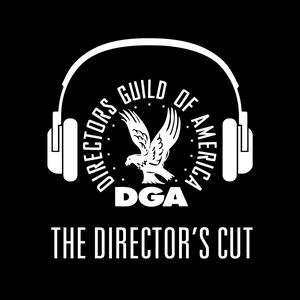 The Director's Cut - A DGA Podcast
The Director's Cut - A DGA Podcast
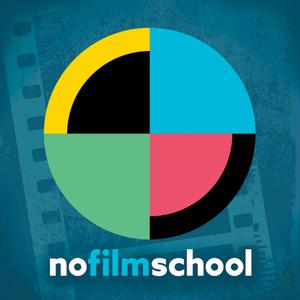 The No Film School Podcast
The No Film School Podcast
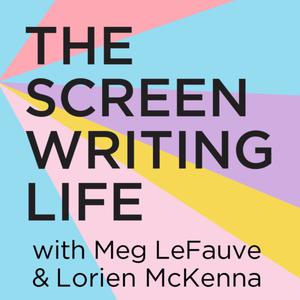 The Screenwriting Life with Meg LeFauve and Lorien McKenna
The Screenwriting Life with Meg LeFauve and Lorien McKenna
 Script Apart with Al Horner
Script Apart with Al Horner
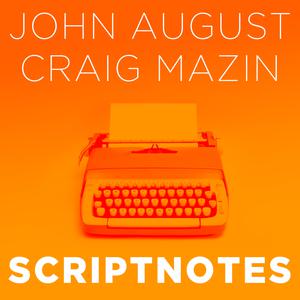 Scriptnotes Podcast
Scriptnotes Podcast
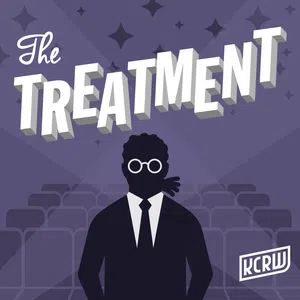 The Treatment
The Treatment